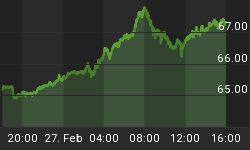
"The issuer's promise" is a phrase I have used recently to describe the backing for fiat currencies. The purpose of this article is to define it further, given that it is increasingly likely to be challenged in the foreign exchange markets with respect to the euro.
To begin we need to define the principal difference between gold and a fiat currency. Gold has no price when it is used as money, other than what it is exchanged for in goods. Uniquely as money, it was in demand everywhere by all societies to settle their own domestic and foreign trade. Fiat money is only used to settle transactions in the jurisdiction to which it relates, and foreigners who end up with it exchange it for their own fiat money, because out of jurisdiction it is not money.
There are three basic exceptions to this rule. The dollar, through its original gold convertibility became a substitute for gold, and still enjoys an international role as a result of that legacy. A second exception is when governments intervene and build up holdings of foreign fiat money. And the third is when ownership of foreign currencies accumulates for speculative purposes. Otherwise, outside its jurisdiction a fiat currency has no useful value.
Its validity is based on a promise by the issuing central bank and the relevant government that it actually has value. The value of that promise is subjectively assessed in foreign exchange markets, where dealers compare fiat currencies. The result is that the purchasing power of a fiat currency can diminish substantially in foreign exchanges before disrupting its domestic monetary role. The dollar, for example, has lost most of its purchasing power since it became completely disconnected from gold in 1971, but Americans still think automatically "I have 10 bucks to spend: what shall I buy?" rather than "I must get rid of these 10 bucks before they lose yet more value".
We all think like that with our respective fiat currencies, and the moment we don't marks the start of a collapse in confidence in the issuer's promise. This could be the euro's Achilles Heel, because there is no identifiable government actually prepared to stand behind the European Central Bank, and as the crisis intensifies, there is a growing risk the promise will be found wanting by the eurozone's own citizens.
Fiat money is managed by neoclassical economists at central banks who think they understand price theory. The euro is in danger of a sudden collapse, and it is not clear that the powers-that-be in the ECB understand this. It is not even clear if they understand that hyperinflation is not, as the term in modern usage suggests, an accelerating rise in the price of goods. Instead it is a collapse in the value of fiat money that arises from a reassessment of the issuer's promise by domestic users.
The euro's future is essentially tied to a collection of disparate governments. If any of them leaves, it risks bringing on a collapse in its value that is completely beyond the control of the ECB.















